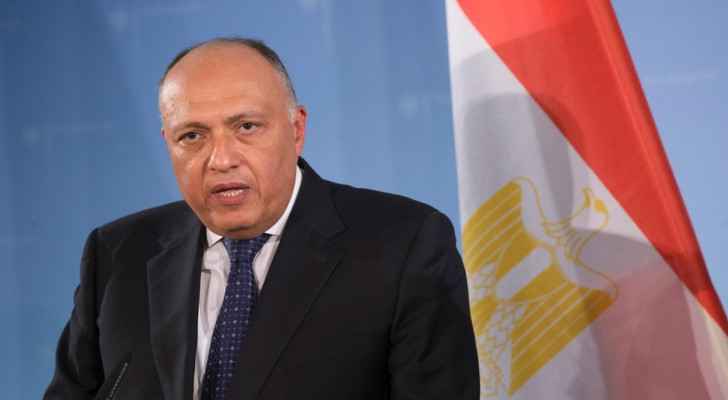Whatever it takes! - By Yusuf Mansur, The Jordan Times
The COVID-19 outbreak in Jordan calls for a massive, coordinated and concerted action by the government, all of the government. Such action should be done quickly. Moreover, it simply cannot be addressed through the usual processes and procedures of yesteryears. In this article, I do not attempt to describe what has been done by the various government bodies, but what should be done.
Let us start with the current situation. Upon the onset of the COVID-19 and its outbreak, the macroeconomic situation, which had been in a prolonged downturn during 2010-2019, deteriorated quickly in 2020. In the first quarter of 2020, the real growth rate was still positive at 1.3 per cent, the decrease rate was -2.2 per cent during the third quarter of 2020 compared with a growth rate that reached 1.9 per cent in the same quarter of 2019. At the level of economic sectors, preliminary estimates of most sectors have shown a retreat during the third quarter of 2020 compared with the third quarter of 2019. Hospitality and tourism, construction, transport, and the education sectors have taken major hits that ranged between 40 to 50 per cent in terms of revenues according to some estimates. Indeed, the growth rate in 2020 will be negative and it will be shown to have declined by more than 5 per cent.
The inflation rate went down to 0.43 per cent in the first 10 months of 2020. Jordan’s unemployment rate continued to rise, reaching 23.9 per cent in the third quarter of 2020 from 19.1 per cent in the third quarter of 2019. It is the highest unemployment rate in the past 15 years. And poverty is rising, especially among the most vulnerable groups.
Remittances are expected to decline from JD2363 million to JD2080 million in 2020. The drop in oil prices, which positively impacted the trade balance, exports less imports, adversely affected the budget as revenues from taxes on oil declined. Domestic revenues during the first eleven months of 2020 amounted to JD5,639.7 million, compared to JD6,355 million during the same period in 2019. Foreign grants during the first eleven months of 2020 amounted to JD712 million, compared to JD213 million during the same period in 2019. Total public revenues during the first eleven months of 2020 amounted to JD6352 million, compared to JD6567 million during the same period in 2019. Public debt has grown to over 107 per cent to meet the government current obligations, salaries, pensions and debt servicing.
The level of reserves at the Central Bank of Jordan first started declining during the lockdown period between March and May of 2020, but then surged in July after two successful Eurobond issuances with a total value of $1.75 billion. Reserves later dropped in October with the repayment of $1.25 billion Eurobonds. However, the International Monetary Fund review of October 2020 has confirmed that the level of international reserves will remain adequate over 2021 and should provide continued support to the JD-US dollar peg.
Clearly, a realist will realise that not all businesses will survive the crisis, or that institutions will not remain solvent. It is not a case of business-as-usual, and much more needs to be done. Dealing with pandemics in Jordan can learn from how the world dealt with global economic crises. When the world reacted slowly with the Great Depression of 1929, it took the world economies 15 years to recover. In contrast, the 2008 Global Credit Crisis, which was manifolds larger in size than the Great Depression, was quickly addressed and most of its aftermath was mitigated within a year.
The same applies to the pandemic and its aftermath. Countries that acted swiftly in response to the pandemic will see their economies least affected by the pandemic; others who simply reacted with seemingly little concern for the lasting impact and its depth, particularly on some of the economic sectors, will reap for us all a very slow and prolonged recovery. But action is not the responsibility of one government entity; it requires a coordinated thinking from outside the box. Why? Because we need to do whatever it takes!
Latest News
 Dubai reels from floods chaos after record rains
Dubai reels from floods chaos after record rains Khasawneh, Saudi Shura Council speaker discuss bilateral ties, regional developments
Khasawneh, Saudi Shura Council speaker discuss bilateral ties, regional developments Egyptian Foreign Minister condemns potential Palestinian displacement as 'war crime'
Egyptian Foreign Minister condemns potential Palestinian displacement as 'war crime' Travelers from Jordan advised to confirm flights amid Gulf weather turmoil
Travelers from Jordan advised to confirm flights amid Gulf weather turmoil France summons Iranian ambassador over strikes against “Israel”
France summons Iranian ambassador over strikes against “Israel”
Most Read Articles
- Dubai reels from floods chaos after record rains
- King, Bahrain monarch stress need to maintain Arab coordination
- Security Council to vote Thursday on Palestinian state UN membership
- Khasawneh, Saudi Shura Council speaker discuss bilateral ties, regional developments
- Hizbollah says struck Israel base in retaliation for fighters' killing
- Tesla asks shareholders to reapprove huge Musk pay deal
- Jordan will take down any projectiles threatening its people, sovereignty — Safadi
- The mystery of US interest rates - By The mystery of US interest rates, The Jordan Times
- Princess Basma checks on patients receiving treatments
- Knights of Change launches nationwide blood donation campaign for Gaza